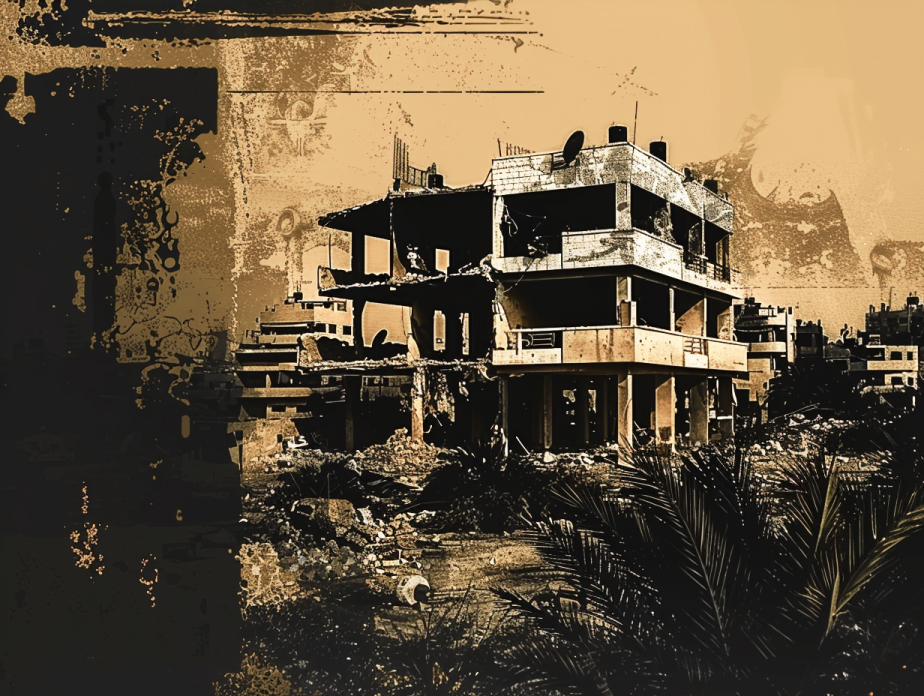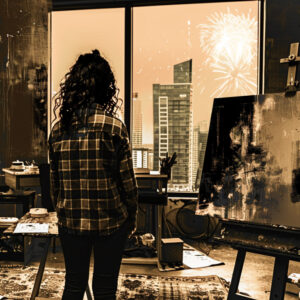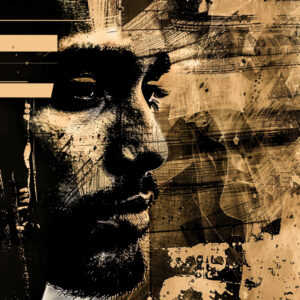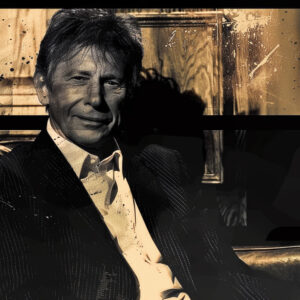The artist's ability is always manifested in expressing what fills his soul and inspires him…

“I know”. That was the phrase of Tariq, one of the heroes of the movie “West Beirut”, when his mother told him that she did not know what was happening? The director, “Ziad Doueiri”, retells the events of the Lebanese war 1975 from the point of view of Tarek and his companions.
The story of revolves around Beirut in 1975, with the characters of children living in the world of adults with their rebellious dreams against reality, and against all that is imposed on them. Tariq rebels against the school system, to make an identity that distinguishes him from the identity imposed upon him in the French school. When he sang the Lebanese national anthem from a speaker hidden for this moment. It was louder than the throats of students who were singing the anthem in French, to join him despite the protest of the French school director. Thus, the film started to search for a Lebanese identity in harmony with its surroundings and culture, only to drift in an attempt to reunite Lebanon when the war divided it into a Muslim East and a Christian West. The film tells the story of the world with the upcoming challenges, starting from the unified Beirut, which was divided to east and west. It tells the story of adults lost between survival and steadfastness in a country facing the calamities of war, between travel, migration and escape. The Lebanese actress “Carmen Lobbos”, who played Hala, excelled at depicting the Lebanese conscience that is afraid of war with its consequences, thinking about surviving by any means, by traveling, by emigration, by preserving the necessary sustenance of life, and the cohesion of the family to the last moment.
“Hala” heard from the representative of the European press, what will happen to Lebanon? The west, as portrayed by Doueiri, called the beginning of the war “the long winter” where he asserted that Lebanon would undergo drastic changes, but her husband, Riad “Abu Tariq” rejects this description, adhering to the land in which he lived and on which he will remain. He remained as such until the end when Hala left him. Tarek and his two friends, Omar and Mai, are touring West and East Beirut, trying to film a movie that tells the beginning of their experience in the world of adults, trying to match and imitate them, in a struggle and search for self among the ruins of the city, the decline of values, and the control of the gangs and the beneficiaries of this war. Neither Mai’s religion nor her cross dissuaded him from accompanying her, nor the pressure of Omar’s father, who lived an open life, and after the war, he wanted his children to learn the Qur’an and go to prayer in the mosque. Major changes took place in the Lebanese society, as a result of the sectarian division, but these children transcended all those differences, living their lives and their war, with their eyes and their unfolding experience. Doueiri made his characters speak, in response to the major questions that were confronting that generation, “Whoever asked you, Tariq, What is your religion? Say, I am Lebanese”. This is how uncle Hassan recommended Tariq. He paid for his will when he refused to protect “Abu Hanash,” the armed man who benefits from the weakness of the country, and he defied him and almost killed him.
As for the “Um Walid” house, it was the meeting place for all the warring parties, which is the brothel that brings them together in one bed between East and West Beirut, which was suggested by Tariq when he wanted, according to his own concept, to gather “Arafat and Gemayel” at “Umm Walid” house to end the war in his opinion, but the remnants of the war reached the bed of Umm Walid’s daughters to ask her question, which she reached in the midst of this war, “Does the bed have a religion?” In the middle, “Tareq, Omar, and Mai,” grow up on the impact of the war and its changes in Lebanese society, reformulating their ideas and visions, fleeing to a better world, wishing to be the generation that will overcome the war, bearing in their memory the tragedy they see in the eyes of others, and praying that it never reaches them. Ziad Doueiri presented his work with his own vision that enabled him to win the 1998 Cannes Film Festival. His characters simply managed to penetrate the conscience of all Lebanese, and everyone who saw his work and knew what he did not know about the war.
Rami Maki



